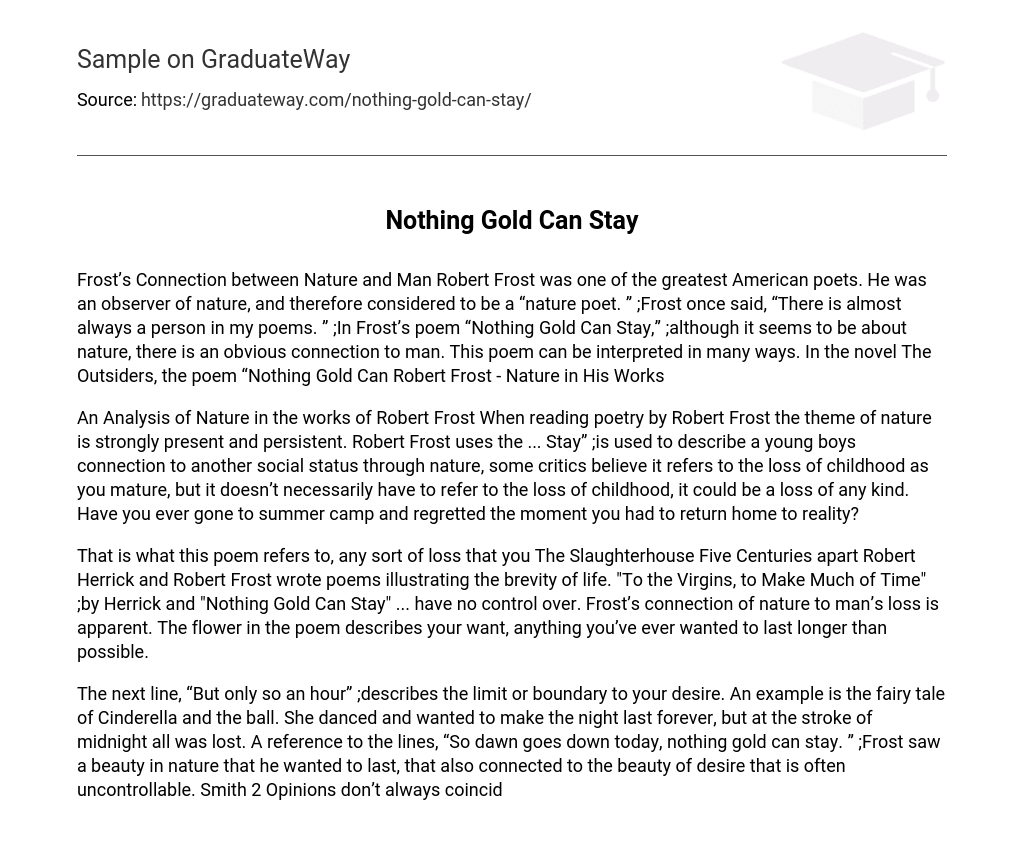Robert Frost, a renowned American poet, was often referred to as a “nature poet” due to his keen observation of the natural world. He famously claimed that there is usually a human element present in his poems. In his work “Nothing Gold Can Stay,” Frost explores the connection between nature and man. While the poem appears to focus solely on nature, it holds underlying significance for humanity. This multi-faceted poem allows for various interpretations. It is also worth noting that Frost’s incorporation of nature into his literary pieces is a recurring theme throughout his works.
In the poetry of Robert Frost, nature is a recurring and significant theme. Frost examines the relationship between individuals and nature in poems like “The Road Not Taken” and “Stopping by Woods on a Snowy Evening”. In one specific poem, titled “Nothing Gold Can Stay”, Frost explores how a young boy’s connection to a different social status can be influenced by nature. While some critics interpret this as a metaphor for the loss of childhood with age, it can also represent any kind of loss. For instance, have you ever felt hesitant to leave summer camp and go back to the responsibilities of everyday life?
The poem refers to any kind of loss that one cannot control. Centuries apart, Robert Herrick and Robert Frost wrote poems about the shortness of life. Herrick’s “To the Virgins, to Make Much of Time” and Frost’s “Nothing Gold Can Stay” both connect nature to human loss. In Frost’s poem, the flower symbolizes a desire for something to last longer than it can.
The following line, “But only so an hour,” illustrates the limitation or restriction on one’s desire. One instance of this is seen in the fairy tale of Cinderella and the ball. She danced and wished for the night to endure indefinitely, yet everything was lost when the clock struck midnight. The mention of the lines, “So dawn goes down today, nothing gold can stay,” expresses Frost’s admiration for the fleeting beauty of nature, which he desires to prolong, as well as how it relates to the captivating nature of desire that often cannot be controlled. Smith 2 Opinions don’t always coincide.





